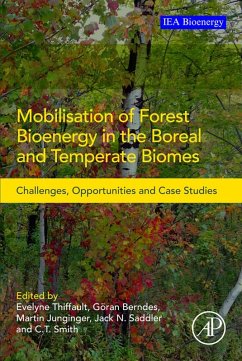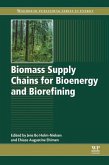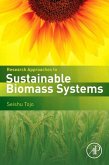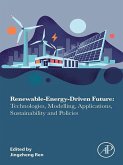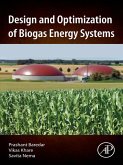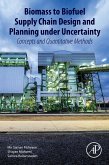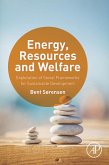Mobilisation of Forest Bioenergy in the Boreal and Temperate Biomes: Challenges, Opportunities, and Case Studies features input from key international experts who identify and analyze the main opportunities and roadblocks for the implementation of sustainable forest biomass supply chains in the boreal and temperate regions. It draws from responses to surveys that were sent to specialists from different countries, compares models of bioenergy deployment, and discusses different types of bioenergy carriers.
Efficiency and profitability of the supply chain are analyzed and the scale and level of confidence of feedstock inventory estimates are highlighted. Logistics and ecological and socio-economic footprints are also covered. This book provides a synthesis of the scientific and technical literature on specific aspects of forest biomass supply chains, and quantifies future potentials in comparison to estimates provided by other sources and the targets for bioenergy production set by various organizations (IEA, IPCC, etc.).
Finally, the book proposes recommendations for practitioners, policymakers, and future research. This approach makes the book especially relevant for professionals, policymakers, researchers, and graduate students in the field of bioenergy conversion and management, as well as those interested in sustainable management of natural resources.
- Presents foundational theory, examples and lessons learned, drawing on scientific and technical literature, as well as surveys conducted among stakeholders from various countries of the boreal and temperate biomes
- Provides best practices, insights, and recommendations through an integrative framework that encompasses various aspects of forest biomass supply chain, at different scales, and looking at a broad geographical and geopolitical range
- Compares contrasting history, policy context, and level of forest bioenergy development in several countries through several case studies
- Analyzes the efficiency and profitability of the supply chain, highlighting the scale and level of confidence of feedstock inventory estimates
Dieser Download kann aus rechtlichen Gründen nur mit Rechnungsadresse in A, B, BG, CY, CZ, D, DK, EW, E, FIN, F, GR, HR, H, IRL, I, LT, L, LR, M, NL, PL, P, R, S, SLO, SK ausgeliefert werden.

